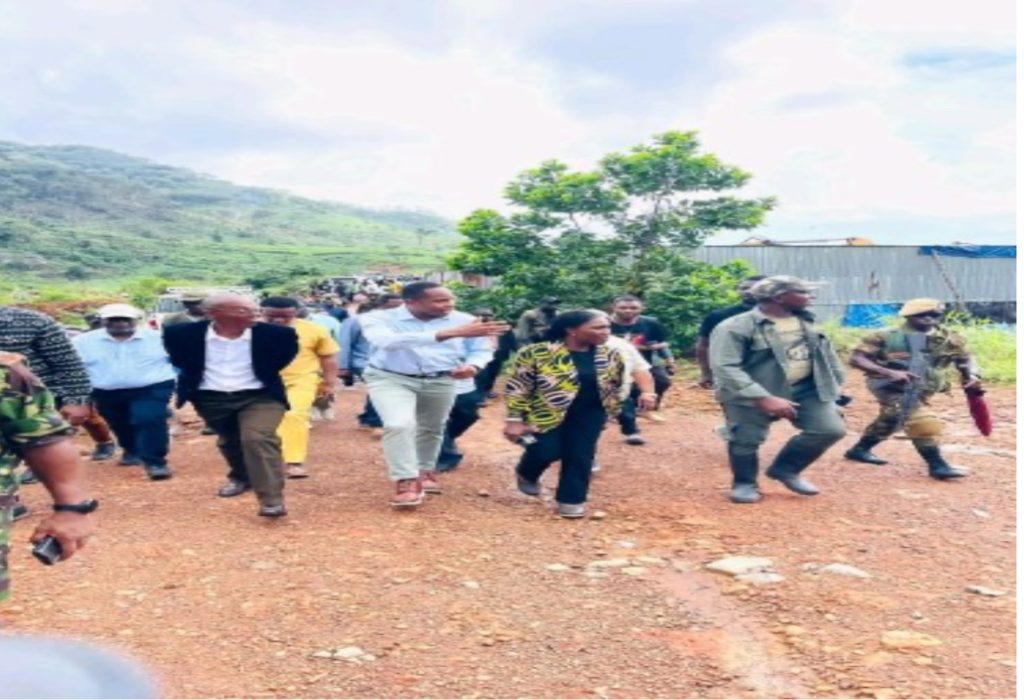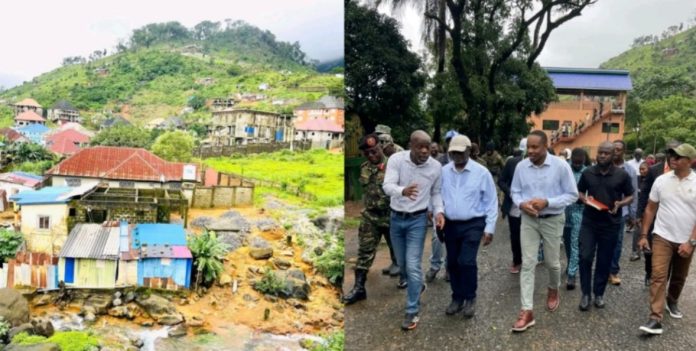AYV News, August 14, 2025
Sierra Leone’s Chief Minister, Dr. David Moinina Sengeh has championed government’s effort to protect the Western Area Peninsula Park from encroachers.
He led a team of officials from the Ministries of Lands, Environment, Local Government, Tourism, Internal Affairs, and Finance and state security personnel to take firm action in protecting the park’s boundaries and preventing further damage.

They were joined by technical teams and representatives from the Guma Valley Water Company, National Disaster Management Agency, National Protected Area Authority, Office of National Security, Sierra Leone Police, and the Republic of Sierra Leone Armed Forces.
During the visit, the team went to different parts of the park, including areas where structures have been built or farming has taken place too close to or even inside the protected area. Their work focused on setting a clear and lasting boundary around the park. The goal is not to reduce the park in any way, but to secure it properly and stop people from continuing to move into the space that is meant to be kept for forest and water protection.
They also discussed the need to restore the land through tree planting and reforestation, and to take steps that will protect water sources used by communities. These measures are also expected to help reduce the risk of disasters such as flooding, landslides, and blocked water channels during the rainy season.
To make the right decisions, the team looked at a mix of technical reports, past government decisions, and the way some nearby communities have grown in recent years. The work will lead to stronger enforcement, and new rules, fees, and penalties are expected for anyone who builds, farms, or cuts trees inside the protected forest boundary.
This action follows earlier concerns over a past proposal to remove almost 5,000 hectares, nearly 29 percent, from the park’s protected area. That plan caused strong objections from government agencies and civil society groups, especially those involved in water and environmental protection. They warned that such a move could lead to serious consequences for Freetown’s water supply, and increase the chances of natural disasters in areas where people are already at risk.
The team’s work is part of an ongoing government effort to protect the forest and make sure the park can continue to support clean water, a safe environment, and better planning for the future. This includes activities like forest recovery, tree planting, and stronger land control systems that help protect both nature and the people who live nearby. The aim is to make sure the park is preserved, the water system remains secure, and a healthier environment is passed on to future generations across Sierra Leone.

